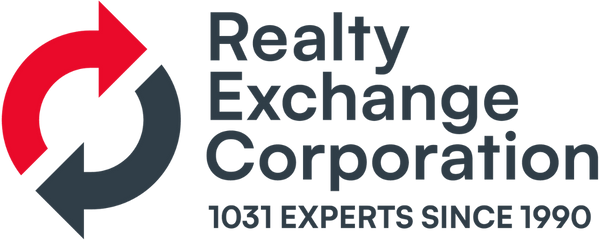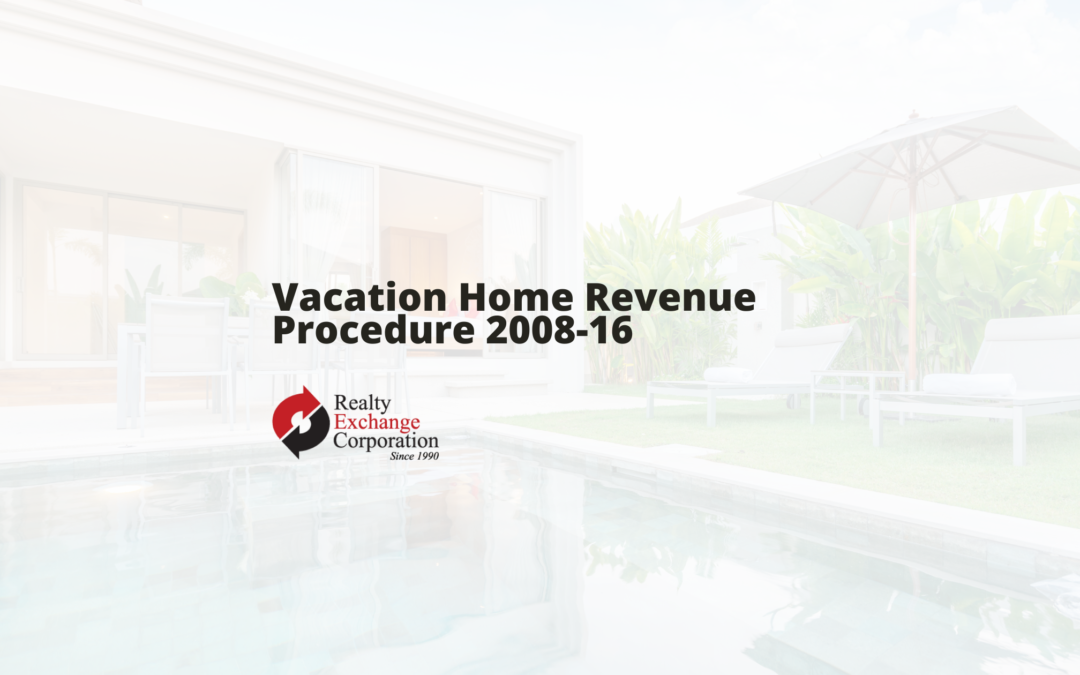Vacation Home Revenue Procedure by William Horan
Safe Harbor for Vacation Home
The IRS published Revenue Procedure 2008-16 for the purpose of providing a Safe Harbor under which the IRS will not challenge whether a dwelling unit with limited personal use qualifies as property held for productive use in a trade or business or for investment for purposes of Section 1031 of the Internal Revenue Code.
Dwelling Unit
For this Vacation Home Revenue Procedure, a dwelling unit is real property improved with a house, apartment, condominium, or similar accommodations including sleeping space, bathroom, and cooking facilities. The Revenue Procedure says, “The Service recognizes that many taxpayers hold dwelling units primarily for the production of current rental income, but that they also use the properties occasionally for personal purposes.” This Revenue Procedure applies to the exchange of dwelling units occurring on or after March 10, 2008.
Qualifying Use
The Qualifying Use Standards established in Section 4 of the Revenue Procedure are new. If the standards are met, the IRS will not challenge whether the dwelling unit is held for a qualifying use in an exchange. The Qualifying Use Standards are applied to either the relinquished property or the replacement property and are:
a) that the dwelling unit with limited personal use is owned at least 24 months before the exchange if it’s the relinquished property, or 24 months after the exchange if it’s the replacement property;
b) that, within the applicable 24-month qualifying use period, in each of the two 12-month periods, the taxpayer rents the dwelling unit to another unrelated person or persons at fair value rental for 14 days or more. A related person may rent at fair value if the dwelling is a principal residence for the related person (§§280A(d)(2) & 280A(d)(3)), and
c) that the property must be a dwelling unit.
A taxpayer utilizing the Safe Harbor in this Revenue Procedure also must satisfy all other requirements for a like-kind exchange under Section 1031 and the regulations thereunder.
Each Property
If you want to use the Safe Harbor, the Vacation Home Revenue Procedure looks at each property to determine if personal use is too high and if actual rental income is generated. If you have a relinquished dwelling with personal use, we now know that if you wish to use the safe harbor, you should own it 2 years before an exchange, rent it to someone other than direct family at fair value for at least 14 days in each of the 2 years, and limit personal use to 14 days or 10% of the days rented, whichever is larger
Vacation Home Revenue Procedure: Personal Use and Holding Period
We are always asked “How much personal use is too much?” and “How long do I have to hold?” Many taxpayers dream of eventually moving into their rental property and converting it to a principal residence. Section 121 of the tax code defining the tax treatment on our homes even provides for this eventuality (§121(d)(10))
This IRS Revenue Procedure 2008-16 provides a Safe Harbor answer when you are completing an exchange.
Fact Sheet 2008-18
In March 2008 the IRS published Fact Sheet 2008-18, entitled “Like-Kind Exchanges Under IRC Code Section 1031.” In the fact
Bill Horan, a Certified Exchange Specialist®, and Ed Horan is Senior Exchange Consultant for Realty Exchange Corporation, Gainesville, VA.
This publication is designed to provide accurate information on tax-deferred exchanges. The publisher is not engaged in rendering legal or accounting services. If legal or tax advice is required, the services of a competent professional should be sought.

